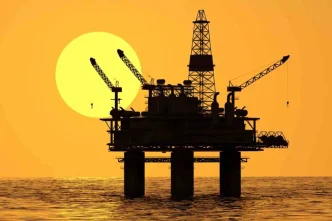Jakarta – In a significant move reshaping Indonesia’s energy retail sector, PT Shell Indonesia, a subsidiary of the Anglo-Dutch energy giant Shell plc, has announced the sale of its gas station business to a joint venture between the Philippines-based Citadel Pacific Limited and local lubricant distributor Sefas Group. The transfer, expected to conclude by the end of 2026, marks a strategic pivot for Shell in one of Southeast Asia’s largest markets, raising questions about the future of fuel retail and consumer trust amid recent supply disruptions.
A Strategic Divestment
The deal encompasses Shell Indonesia’s mobility value chain business, including around 200 gas stations—over 160 of which are company-owned—and a fuel terminal in Gresik, East Java. While the financial terms of the agreement remain undisclosed, Shell emphasized that its brand will persist in Indonesia through licensing agreements. Fuel supply will continue via Shell Trading, ensuring customers access to the company’s high-quality products, according to a statement released on May 24, 2025.
“Following completion [of the ownership transfer], the Shell brand will remain in Indonesia through brand licensing agreements, fuel will be supplied through Shell Trading and customers will continue to have access to Shell’s high-quality fuel products” said a company spokesperson. Importantly, the transaction excludes Shell’s lubricant operations, a segment identified as a key growth area in Indonesia. The company operates a lube oil blending plant with a capacity of 300 million liters and is developing a grease manufacturing plant in Marunda, North Jakarta, capable of producing 12,000 tonnes annually.
This divestment aligns with Shell’s broader global strategy to streamline operations and focus on high-growth, low-carbon sectors. In its first-quarter results announced on May 2, 2025, Shell Global reported a 28 percent drop in net profit to US$5.58 billion, attributed to declining oil prices and reduced refining margins. The sale of its Indonesian gas station network appears to be part of a portfolio transformation aimed at mitigating such financial pressures while retaining influence through brand licensing and supply agreements.
New Players in Indonesia’s Fuel Market
The acquiring joint venture brings together Citadel Pacific, a diversified holding company based in Taguig, east of Manila, and Sefas Group, Indonesia’s largest Shell lubricant distributor. Citadel Pacific has a robust presence in the Asia-Pacific region, with Shell brand licenses in territories such as Guam, Hong Kong, Macau, and the Republic of Palau. Its expertise in fuel marketing and gas distribution positions it as a significant player in this transition.
Sefas Group, meanwhile, has deep roots in Indonesia’s energy sector, with operations spanning Balikpapan and strategic areas in East Kalimantan, particularly in mining and related industries. The partnership between these two entities suggests a blend of international experience and local market knowledge, potentially stabilizing Shell’s retail presence amid recent operational challenges.
Recent Supply Disruptions and Consumer Confidence
Shell Indonesia’s decision to divest comes on the heels of notable supply disruptions that have tested consumer confidence. In February 2025, gas stations across Java operated by Shell and BP Indonesia faced fuel shortages, which the government attributed to delayed shipments. The situation worsened in March, ahead of Idul Fitri, when a surge in demand during the traditional mudik (exodus) period left pumps dry in several cities.
This spike in demand was partly fueled by a corruption scandal involving executives at subsidiaries of Pertamina, Indonesia’s state-owned energy giant. The Attorney General’s Office named several individuals as suspects in an embezzlement scheme, alleging they passed off lower-quality imported fuel as a premium, high-octane product. The scandal tarnished Pertamina’s reputation, prompting many consumers to turn to private operators like Shell and BP, thereby straining their supply chains.
In response, the Indonesian government sought to reassure the public that the disruptions at Shell stations were isolated incidents, asserting that private gas stations nationwide were not facing systemic shortages. However, the logistical challenges highlighted vulnerabilities in the fuel retail sector, particularly during peak demand periods tied to cultural and religious observances.
Broader Implications for Indonesia’s Energy Sector
Indonesia, with a population exceeding 270 million and a rapidly growing economy, remains a critical market for energy companies. The fuel retail sector is a cornerstone of daily life, supporting everything from personal transportation to industrial logistics. Shell’s exit from direct ownership of gas stations raises questions about how the joint venture will manage operational challenges, particularly in maintaining consistent supply amid fluctuating demand and global oil price volatility.
Moreover, the transaction reflects a broader trend among multinational energy firms to recalibrate their presence in emerging markets. By transitioning to a licensing model, Shell can reduce operational risks while maintaining brand visibility and revenue streams through fuel supply agreements. This approach may set a precedent for other global players in Indonesia, potentially leading to increased partnerships with local firms that better understand the market’s nuances.
For consumers, the continuity of the Shell brand and access to its fuel products may provide some reassurance. However, the memory of recent shortages could linger, prompting scrutiny of how Citadel Pacific and Sefas Group manage the transition. If supply disruptions persist, public trust in private fuel retailers could wane, potentially benefiting competitors or even rehabilitated state-owned entities like Pertamina, should they address their governance issues.
Regional and Global Context
Shell’s strategic shift in Indonesia mirrors similar moves in other regions. In the United States, for instance, gas prices have dropped by approximately 50 cents compared to last year, as reported on May 22, 2025, prompting projections from AAA that 45.1 million Americans will travel at least 50 miles from home over the Memorial Day holiday period. While the contexts differ, the underlying theme of adapting to market dynamics—whether through price adjustments or portfolio restructuring—underscores the global energy sector’s current state of flux.
In Southeast Asia, where energy demand continues to rise alongside economic development, the balance between foreign investment and local control remains delicate. Shell’s partnership with Citadel Pacific and Sefas Group could serve as a model for blending international expertise with regional insight, provided the joint venture navigates Indonesia’s complex regulatory and cultural landscape effectively.
Looking Ahead
As the ownership transfer progresses toward its projected completion in late 2026, stakeholders across Indonesia’s energy sector will be watching closely. The ability of Citadel Pacific and Sefas Group to stabilize Shell’s retail network could influence consumer perceptions and competitive dynamics in the market. Meanwhile, Shell’s focus on lubricants and other high-growth areas suggests a long-term commitment to Indonesia, albeit in a reimagined form.
For Indonesian motorists and businesses reliant on fuel, the hope is for a seamless transition that prioritizes supply reliability. As the nation prepares for future holiday periods and economic milestones, the resilience of its energy infrastructure will remain a critical concern. Whether this deal marks a new chapter of stability or introduces fresh uncertainties is a question that only time—and the actions of the new joint venture—will answer.















